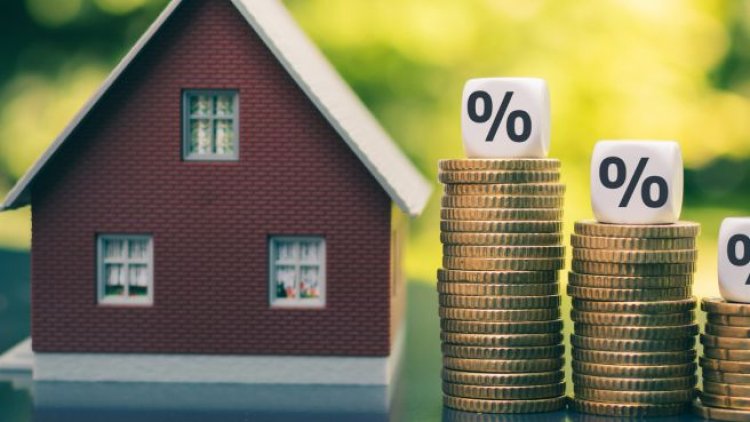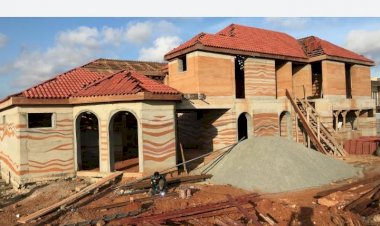Factors that Affect Mortgage Interest Rates
You would definitely want to find the lowest mortgage rate that you can get for your loan. Therefore understanding factors that determine your mortgage interest rate is important as it may help you in buying and negotiating your mortgage loan.

These factors can be affected by your external factors or financial situation at the time. Therefore this article outlines some of the factors.
Mortgage interest rate or mortgage rate is part of what it costs to borrow money from a lender. It is an extra amount that you must pay to your lender in addition to paying the total amount that you have borrowed. Before you approach a bank for any form of financing, go through their terms and conditions, the total percentage cost that the loan will cover and your loan repayment period and the interest rates. The following are factors that might affect your interest rates.
Credit scores
Customers who have a higher credit score are more likely to receive lower interest rates than those with lower credit scores. This is because your credit scores is used by lenders to predict your reliability in paying back your loan.
This is normally based on the information in your credit report which gives information about your credit history which can include your loans, payment history and credit card.
Home location
Depending on the location of your home, urban or rural, many lenders may offer slightly different interest rates. You should therefore talk to multiple lenders in order to understand all the options that are available for you.
The price of your home and your loan amount.
The amount you will borrow for your mortgage loan is the home price, plus the closing cost minus your down payment. Therefore depending on conditions at that time or the type of mortgage loan that you qualify for, your closing costs and mortgage insurance may comprise the amount of your mortgage.
Down payment
A larger down payment would mean a lower interest rate. This is because lenders see a lower risk when you have a stake in the property. If you put a 20 percent or more down payment you will have a lower interest rate.
If you put a 20 percent down payment or more, many lenders will require you to purchase mortgage insurance, also called Private Mortgage Insurance. This insurance protects the lender in a case where a borrower stops paying their loan.
As you find your potential interest rate, you might find that you can be offered a slightly lower interest rate with a down payment that is under 20 percent as opposed to the one that is 20 percent or higher. This is because you are paying mortgage insurance, which lowers the risk for your lender. Therefore it is important to consider the overall cost of a mortgage. The larger the down payment, the lower the total borrowing cost.
It is also important to look at the borrowing cost rather than just the interest rate because, while it is true that a lower interest can save you money over time but if you find a slightly lower interest rate with a down payment which is less than 20 percent, your total borrowing cost is likely to be high because you will be required to make an additional Monthly Mortgage Insurance Payment.
Interest Rate Type.
This usually comes in two basic types and they are fixed and Adjustable mortgage rate mortgage.
Fixed rates do not change over time and they are often considered the safest and are often expensive compared to the variable interest rates. You may risk locking yourself at a higher rate in times where the interest rates are falling.
Adjustable rates/Floating rates/Variable rates - may have an initial fixed period after which they either go up or down depending on the markets. Though risky they are cheaper compared to fixed rates.
Loan Term
Loan term simply means how long you have to repay the loan. Shorter loan terms have lower interest rates and a lower overall cost but the monthly repayments are higher.
Loan Type
There are several forms of loan types. To get a huge number of borrowers, most financial institutions in Kenya would try as much as possible to tailor the mortgage to attract different clients. Most banks are likely to offer the following loans
a) Owner-Occupied residential mortgage-For those who live in the property that they have purchased with the mortgage.
b) Investment Residential Mortgage-For those who purchase the property as an investment.
c) Equity Loan-Is an easy way to get extra funds
d) Construction loans-The sum is usually sent to the contractor for those building from the ground.
The following banks in Kenya offer cheap mortgage rates, kindly note that over time, the figures are subject to change.
- Housing finance group
- Standard Chartered Bank 12.2 %
- Citibank Kenya 12.5%
- KCB Bank 13.3%
- NIC Bank Kenya 13.4%
- CFC Stanbic Bank Kenya 14.1%
- Diamond Trust Bank 14.6 %
- Commercial Bank of Kenya 14.9%
Edited by Emomeri Maryanne
If you have a real estate press release or any other information that you would like featured on African Real Estate Blog Post do reach out to us via email at [email protected].

































